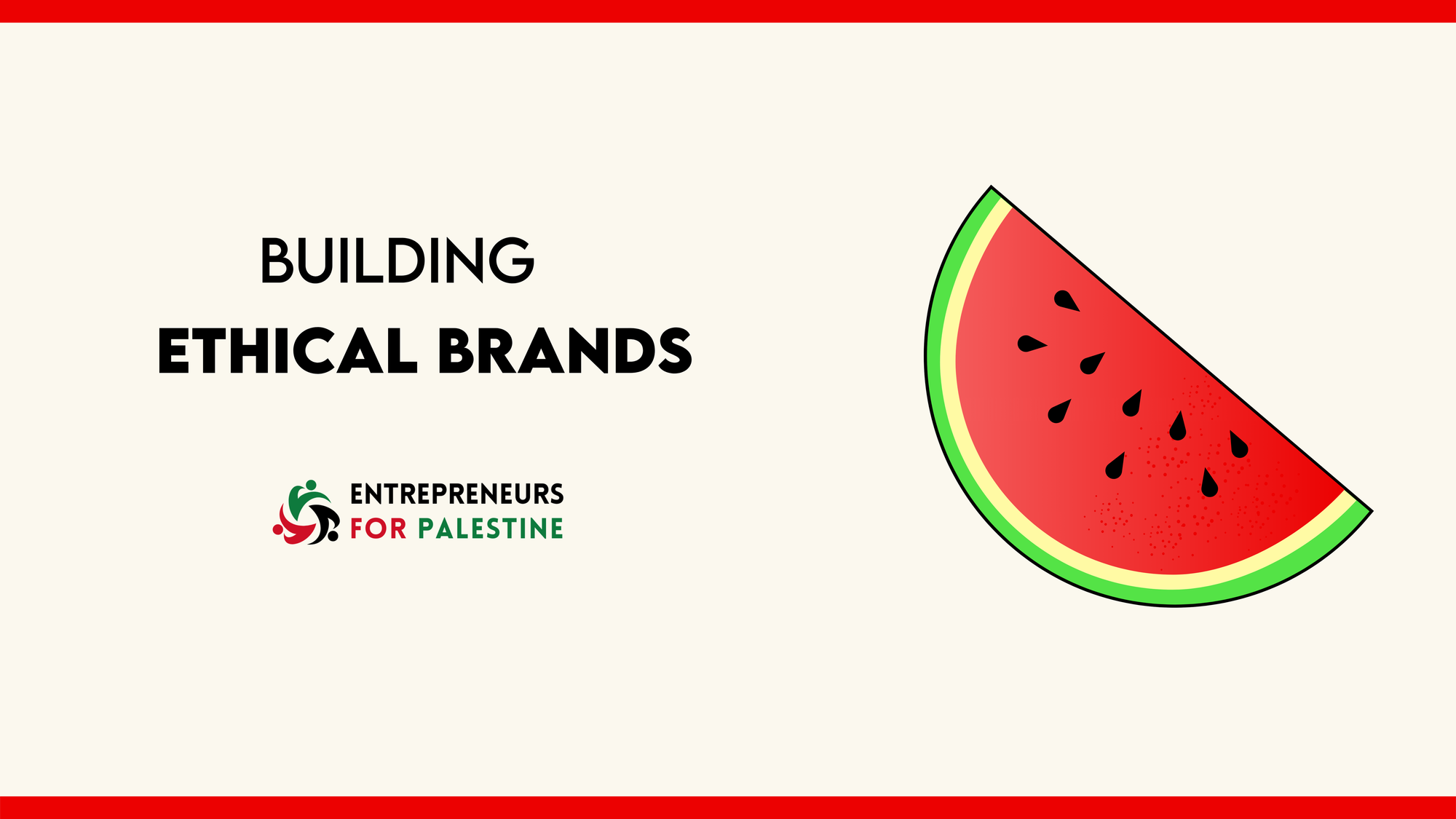Building Ethical Brands: Insights from our E4P webinar

“Every dollar you spend is a vote, and it’s time we start voting for justice.”
Many of us understand the urgency of boycotting unethical brands, especially those complicit in the oppression of Palestinians. But what is often overlooked is that boycotts are not just about refusal; they are also about rebuilding. In our latest E4P webinar on ethical consumerism, we explored how entrepreneurs are creating new, value-driven economic infrastructures that not only resist injustice but also sustain communities in the long run.
The panel brought together founders who are reshaping markets through activism, innovation, and strategic focus:
- Adil Abbuthalha, Founder of Boycat, a value-driven shopping platform guiding consumers on what to buy and what to avoid based on ethical considerations.
- Alex Screven, Founder of Boon Digital Solutions, helping organizations migrate from Israeli-owned website platforms to ethical, open-source alternatives.
- Amir Naviwala, Founder of Huraya, a clean ingredients deodorant brand designed to compete with conglomerates holding unethical affiliations.
- Moderated by Wally Rashid, Palestinian-American journalist and activist.
Challenges Faced in Building Ethical Alternatives
The panel addressed a number of misconceptions around boycotts, the first being that they deliver immediate results. As the speakers stressed, boycotts are a long-term, collective strategy. Real impact is built over years of consistent consumer action, not in a single purchase or protest.
Funding remains one of the toughest challenges. Even committed angel investors may sometimes withdraw support due to external pressures, which often pushes cause-driven founders to turn toward personal resources, community networks, and alternative funding models.
Digital infrastructure poses another layer of difficulty. Many activists unknowingly operate on Israeli-owned platforms like Wix and Shopify, which undermines the goals of their campaigns. Moving to self-hosted, ethical platforms such as WordPress is necessary but technically demanding.
In some industries, pharmaceuticals being a prime example, supply chains are almost entirely controlled by Israeli-affiliated manufacturers. This makes full boycotts nearly impossible in the short term, requiring strategic prioritization and incremental change rather than all-or-nothing expectations.
Innovation and Resilience Born Out of Activism
Despite these challenges, the panel showcased how determination can transform obstacles into impactful solutions.
Adil Abbuthalha’s Boycat has redirected over $250 million in spending from unethical to ethical brands since its launch in early 2024. The platform uses product scanning, search tools, and community tracking to empower consumers. By partnering with the BDS movement, Boycat ensures that its guidance is credible, targeted, and effective, turning personal purchasing decisions into collective economic pressure.
Alex Screven’s Boon Digital Solutions focuses on what she calls the “invisible supply chain,” the digital platforms businesses rely on. Her work helps organizations transition away from compromised web services to secure, open-source alternatives. She reminds us that resistance has to run all the way down to the tools we rely on.
Amir Naviwala’s Huraya takes a different approach: targeting a single, everyday product, deodorant, and offering a clean, U.S.-made alternative. By focusing resources on one category, Huraya can compete directly with established brands and steadily shift market control toward ethical producers.
Building a New Economic Infrastructure
The discussion underscored a critical point: boycotts are not just about resistance, they are about renewal. A truly ethical economy requires its own infrastructure, from alternative brands and distribution networks to safe digital platforms and community-backed funding systems.
This work is neither quick nor easy. It demands long-term collaboration between consumers, entrepreneurs, activists, and technologists. And while the road is complex, the goal is simple: a marketplace built on justice, equity, and liberation.
The full webinar dives deeper into the practical realities of funding, navigating censorship, scaling ethical ventures, and building activist-led brands. We encourage you to watch the recording to see how each of these remarkable founders is not only resisting but actively reshaping the economy to serve justice.
